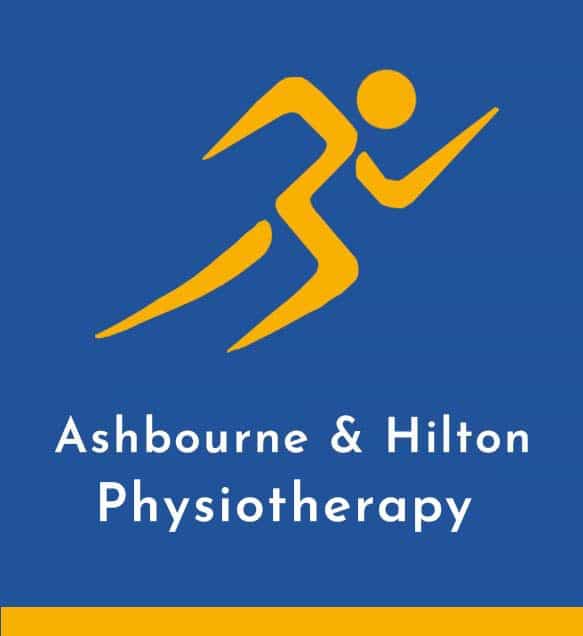Welcome to this month’s Blog…
Patients are experts too!
One of the things we know from our patient surveys that is really valued about our appointments – having a full and frank discussion about what is and isn’t wrong and the options available. We always remember there are 2 experts in the consulting room and you are very definitely the expert on your own body and your own current situation!
What we can do is help to explain treatment choices and talk through with you what seems right for you at this particular time, bearing in mind everything else that might be going on in your life.
There are usually several treatment choices – examples might be:
-
Hands on manual therapy
-
Continuing to self-manage perhaps with support
-
Injection
-
Guided exercise programme
-
Surgery
Or, a combination of some of the above.

Lorna Short (Principal) with one of our patients
‘Shared Decision Making’ – the new Buzz Phrase in healthcare!
So, what does it mean?
Shared decision making is a collaborative process that involves a person and their healthcare professional working together to reach a joint decision about care. It could be care the person needs straight away or care in the future, for example, through advanced care planning. It involves choosing tests and treatments based both on evidence and on the person’s individual preferences, beliefs and values. It means making sure the person understands the risks, benefits and possible consequences of different options through discussion and information sharing. This joint process empowers people to make decisions about the care that is right for them at that time (with the options of choosing to have no treatment or not changing what they are currently doing always included).
When you receive a diagnosis you will naturally have lots of questions:
-
“What treatment/management options are available to me?”
-
“What does the diagnosis mean?”
-
“What are the risks/benefits of each option available?”
-
“Which option is most appropriate for me, taking into consideration my symptoms, preferences, beliefs and current situation?”
-
“Why was my friend offered different options?”
-
“Why have I not been offered this before?”
As Physiotherapists we are skilled at guiding you through this process taking into consideration both the latest available evidence and your current situation.
NHS England have recently published a series of Decision Making Tools to assist you to make these decisions with your Physiotherapist / Healthcare Professional. These include tools specifically written for Hip and Knee Osteoarthritis, Dupuytren’s Contracture and Carpel Tunnel Syndrome.
Each Decision Making Tool is packed with useful information. Each one introduces the treatment options available, discusses them, looking at the evidence for each, and exploring the benefits and risks so that you have all the information you need to discuss your situation with your Physiotherapist / Healthcare professional and come to a decision about the best way forward for you. They are well worth taking a look.
Did you know…?
-
Whilst 11 in every 100 people over the age of 45 in England have Osteoarthritis of the Hip, only 1 in 10 of these choose to have Hip Surgery.
-
47% of people who did exercise for Hip or Knee Osteoarthritis reported an improvement in their pain.
-
75 out of 100 people who had surgery for Knee Osteoarthritis reported that they were ‘much better’, 15 reported being ‘a little better’, 4 were ‘much the same’ and 6 reported being ‘worse or much worse’.
-
Between 3-5 people in every 1000 people develop Carpal Tunnel Syndrome. It is most common in women aged 45-54 and men aged 75-84. Good outcomes are reported for the use of splints, medication, steroid injections and surgery whilst 34 in every 100 people with Carpal Tunnel Syndrome find that is settles without any intervention.
-
Dupuytren’s can develop at any age but its incidence increases as you get older affecting 29 out of every 100 people over the age of 75. Treatment options include Needle Fasciotomy, Fasciectomy, Dermofasciectomy and of course, doing nothing. Steroid injections can help to manage the pain.
See the links below or find them on the NHS website.
Making a decision about Dutuytren’s Contracture
NHS_Dupuytren’s_contracture_decision_tool (england.nhs.uk)
Making a decision about Carpal Tunnel
NHS_Carpal_Tunnel_decision_tool (england.nhs.uk)
Making a decision about Hip Osteoarthritis
NHS_hip_osteoarthritis_decision_tool (england.nhs.uk)
Making a decision about Knee Osteoarthritis
NHS_knee osteoarthritis_decision_tool (england.nhs.uk)
There are also decision aids about:
Glaucoma
Cateracts
Atrial Fibrillation
Macular Degeneration
NHS England » Decision support tools
Please contact us to book an appointment:
Ashbourne: 01335 334952 Hilton: 01283 777070
#ashbournephysiotherapy #ashbournephysio #ashbournephysiotherapy&sportsinjuriescentre #ashbourne #hiltonphysio #hiltonphysiotherapy #hilton #patients #patientsareexperts #expert #shareddecisionmaking #shareddecision #healthcare #physio #physiotheraphy #buzzphrase #decisionmaking #decisions




